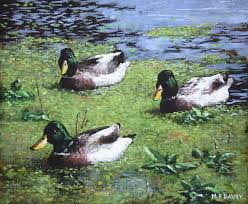Raising ducks can be a rewarding experience, whether for farming, egg production, pest control, or simply as pets. Thanks to modern e-commerce, ordering ducklings online has become a convenient and efficient way to start or expand your flock. Many hatcheries and suppliers now offer fast shipping, ensuring that your ducklings arrive healthy and ready to thrive.
In this comprehensive guide, we’ll cover everything you need to know about ordering ducklings online, including:
- Why Order Ducklings Online?
- Choosing the Right Breed
- Finding a Reputable Hatchery
- Understanding Shipping Policies
- Preparing for Your Ducklings’ Arrival
- Caring for Newly Arrived Ducklings
- Common Mistakes to Avoid
- Benefits of Raising Ducklings
By the end, you’ll have all the information you need to confidently order ducklings online and ensure their safe arrival.
Table of Contents
1. Why Order Ducklings Online?
Ordering ducklings online offers several advantages over purchasing them from local farms or feed stores:
A. Wider Breed Selection
Online hatcheries often carry a broader variety of duck breeds compared to local suppliers. Whether you’re looking for egg-laying ducks like Khaki Campbells, meat breeds like Pekins, or ornamental ducks like Call Ducks, you’ll have more options online.
B. Convenience
Shopping online allows you to compare breeds, read reviews, and place orders from the comfort of your home. Many hatcheries provide detailed descriptions and care guides for each breed.
C. Fast and Reliable Shipping
Reputable hatcheries use specialized shipping methods to ensure ducklings arrive safely. Overnight or two-day shipping is common, minimizing stress on the birds.
D. Health Guarantees
Many online suppliers offer health guarantees, meaning they’ll replace ducklings that arrive in poor condition or don’t survive due to shipping stress.
E. Seasonal Availability
Unlike local stores that may only sell ducklings in spring, online hatcheries often have year-round availability, allowing you to order whenever you’re ready.
2. Choosing the Right Breed
Before ordering, consider what you want from your ducks: eggs, meat, pest control, or companionship. Here are some popular breeds:
A. Best Egg Layers
- Khaki Campbell – Lays up to 300 eggs per year.
- Indian Runner – Excellent foragers, lay around 200-300 eggs annually.
- Welsh Harlequin – Friendly and productive, with 250+ eggs per year.
B. Best Meat Ducks
- Pekin – Fast-growing, large, and tender meat.
- Muscovy – Lean meat, excellent foragers.
- Rouen – Similar to Mallards but larger for meat production.
C. Best for Pets & Ornamental Use
- Call Duck – Small, vocal, and adorable.
- Crested Duck – Unique appearance with a feathery crest.
- Mandarin Duck – Stunning colors, though less common in hatcheries.
D. Dual-Purpose Breeds
- Buff Orpington – Good for both eggs and meat.
- Saxony – Calm temperament, decent egg production, and good meat quality.
Research each breed’s temperament, space requirements, and climate adaptability before ordering.
3. Finding a Reputable Hatchery
Not all online hatcheries are equal. Follow these tips to choose a reliable supplier:
A. Check Reviews & Reputation
Look for customer feedback on Google, forums, and social media. Trusted hatcheries include:
- Metzer Farms (California)
- Murray McMurray Hatchery (Iowa)
- Cackle Hatchery (Missouri)
- Hoover’s Hatchery (Iowa)
B. Look for Health Certifications
Ensure the hatchery follows NPIP (National Poultry Improvement Plan) guidelines to prevent diseases.
C. Shipping Policies
A good hatchery will:
- Ship ducklings via USPS Priority Mail or specialized couriers.
- Offer live arrival guarantees.
- Provide tracking information.
D. Customer Support
Choose a hatchery with responsive customer service in case of issues.
4. Understanding Shipping Policies
Fast shipping is crucial for duckling survival. Here’s what to expect:
A. Shipping Methods
Most hatcheries ship ducklings in ventilated boxes with heat packs (in cold weather) or cooling packs (in summer).
B. Shipping Duration
- Overnight or 2-Day Shipping – Standard for live poultry.
- USPS Priority Mail – Often used for small orders.
C. Minimum Order Requirements
Some hatcheries require a minimum number of ducklings (e.g., 3-6) to ensure warmth during transit.
D. Weather Restrictions
Extreme temperatures may delay shipping to prevent heatstroke or hypothermia.
5. Preparing for Your Ducklings’ Arrival
Before your ducklings arrive, set up a proper brooder:
A. Brooder Setup
- Container – Use a plastic tub, cardboard box, or kiddie pool.
- Heat Source – A heat lamp (90-95°F for the first week, reducing by 5°F weekly).
- Bedding – Pine shavings or paper towels (avoid cedar, which is toxic).
B. Essential Supplies
- Feeder & Waterer – Shallow dishes to prevent drowning.
- Starter Feed – Non-medicated duckling crumble (20-22% protein).
- Electrolytes – Helps reduce shipping stress.
C. Safe Environment
- Keep away from drafts, pets, and small children.
- Ensure proper ventilation without direct cold airflow.
6. Caring for Newly Arrived Ducklings
Once your ducklings arrive:
A. Hydration First
- Dip their beaks gently in water to encourage drinking.
- Add electrolytes to their water for the first 48 hours.
B. Feeding
- Offer duckling starter feed immediately.
- Avoid medicated chick feed (it can harm ducks).
C. Monitoring Health
- Check for pasty butt (clean with warm water if needed).
- Ensure they’re active and eating.
D. Socialization
- Handle them gently to build trust.
- Ducks are social—keep at least two together.
7. Common Mistakes to Avoid
- Not Checking Local Laws – Some areas restrict duck ownership.
- Skipping the Brooder Prep – Cold ducklings can die quickly.
- Overcrowding – Leads to stress and disease.
- Wrong Feed – Ducks need niacin (add brewer’s yeast if needed).
8. Benefits of Raising Ducklings
- Egg Production – Ducks often lay more eggs than chickens.
- Pest Control – They eat slugs, snails, and mosquitoes.
- Entertainment – Ducks have quirky, friendly personalities.
- Meat Source – Sustainably raise your own food.

